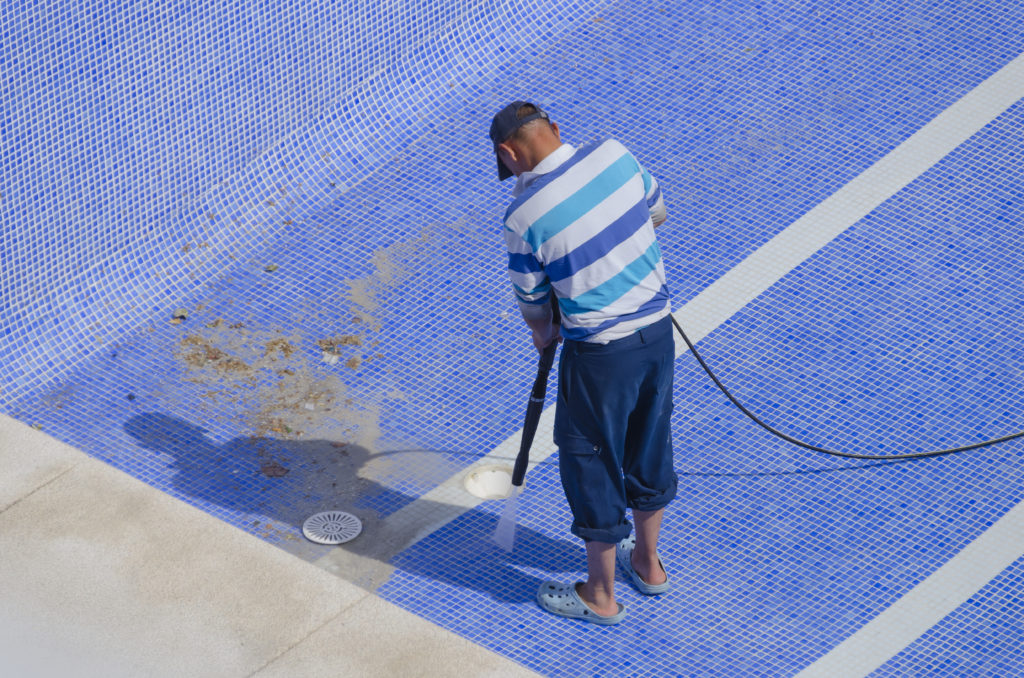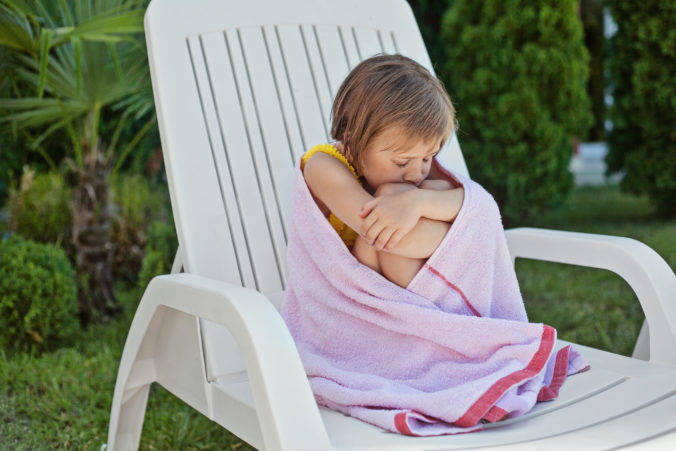Summer is almost here and that means people everywhere will soon be flocking to the water to cool off. Swimming pools are a popular option because they’re considered safer than the ocean since they don’t have a current or threat of sharks. However, there are dangers lurking in swimming pool water that are far scarier than Jaws; E. coli, hepatitis, and noroviruses, just to name a few. Read on to find out why maintaining a clean swimming pool is essential to the health of your family and anyone else swimming in it.

What are the biggest threats?
According to the CDC, hundreds of cases of recreational water illnesses (RWIs) are reported each year and are on the rise. RWIs include diarrheal illnesses and fevers, eye and ear infections, and even neurological illnesses, all of which can be life-threatening to small children and those with weakened immune systems. Cryptosporidium, or Crypto for short, is a germ that poses a major threat because it is resistant to chlorine and is responsible for pool-related diarrheal illnesses. In 2001, 358 swimmers became ill from exposure to Crypto at an Illinois aquatic park.

What can be done about these threats?
While these facts may be alarming, it doesn’t mean that you have to totally avoid swimming pools. Here are some tips for keeping your pool clean and safe for swimming:
-Drain old water and have the pool pressure washed. This is an important step because chlorine can only do so much and if the chlorine levels are too high, it can irritate your eyes and skin. Once you’ve drained the old water, professional pressure washing will get rid of any algae or debris that might be hanging out at the bottom.
-Refill and administer chemicals correctly. Buy a good chlorinator and water testing kit from your local pool supply store. During the summer, you will need to check the chlorine and pH levels twice per week. Also, make sure to shock your pool weekly to kill resistant germs like Crypto.
-Make sure that everyone swimming in your pool is healthy and clean. Anyone who has recently had diarrhea or other gastrointestinal issues should not get in the water. Showering before and after swimming are also important measures. Little ones in swim diapers need to be changed once per hour in the restroom.
Conclusion
Despite the worrying number of RWIs that occur each year, the vast majority of people won’t experience them thanks to vigilant pool owners and operators. If you want to keep your pool healthy for your family, make sure to start by calling Oceanside Pressure Washing and Roof Cleaning LLC for a thorough pressure wash.
